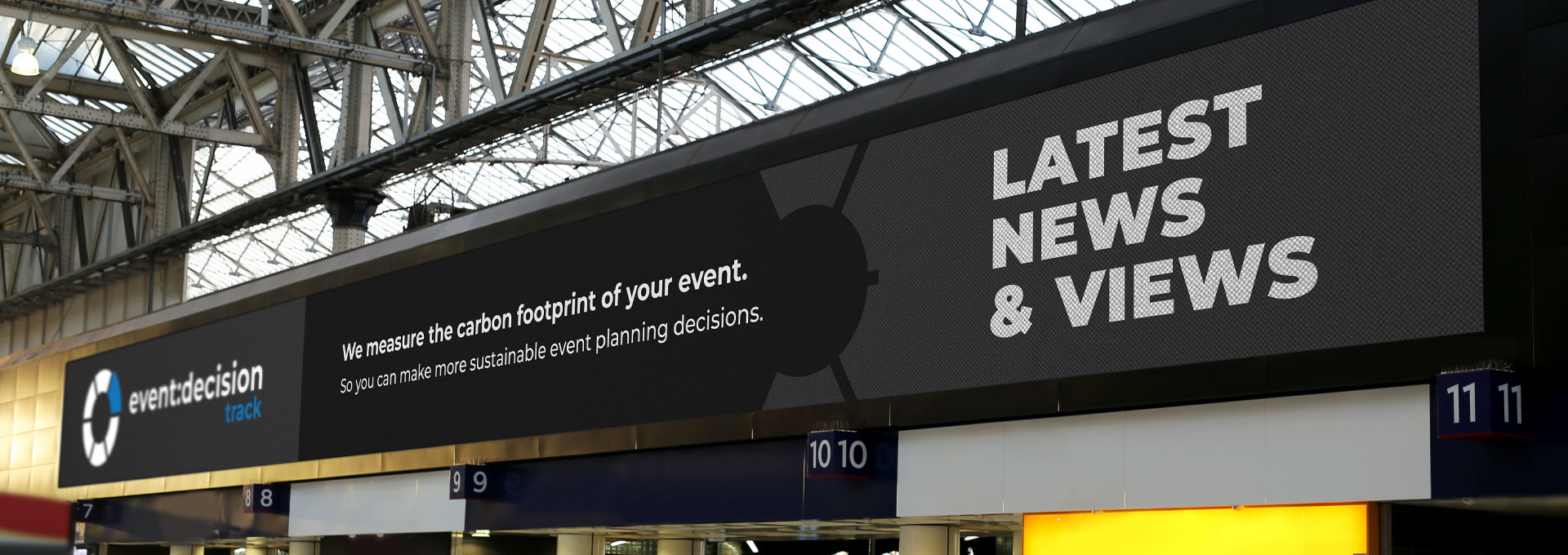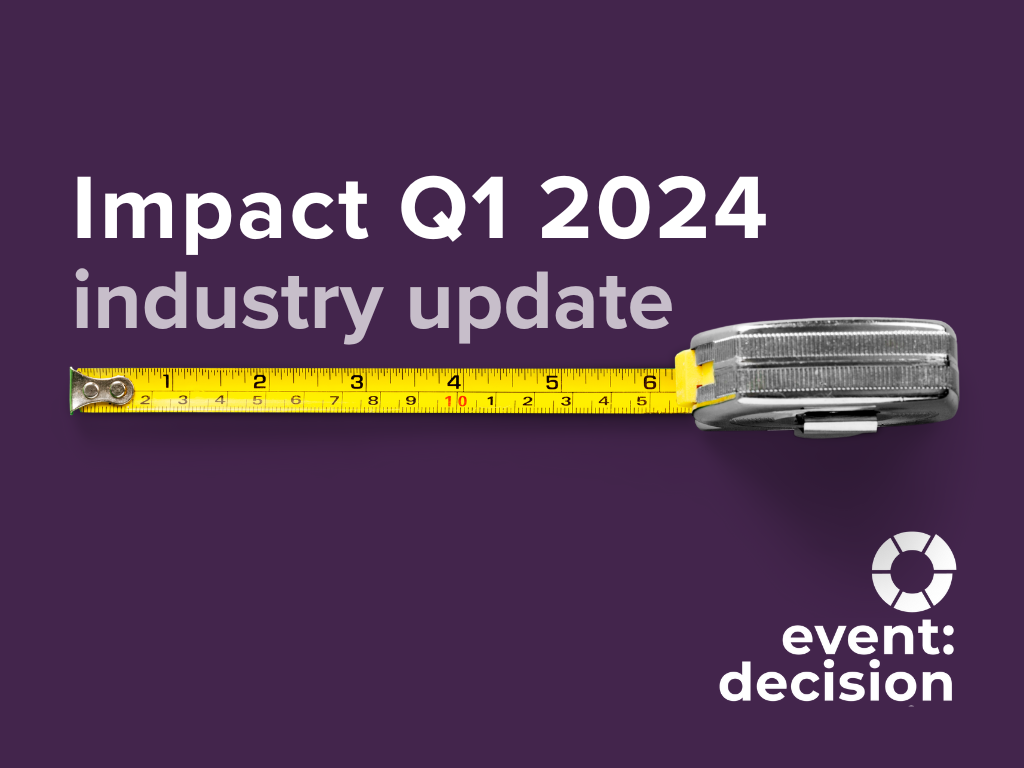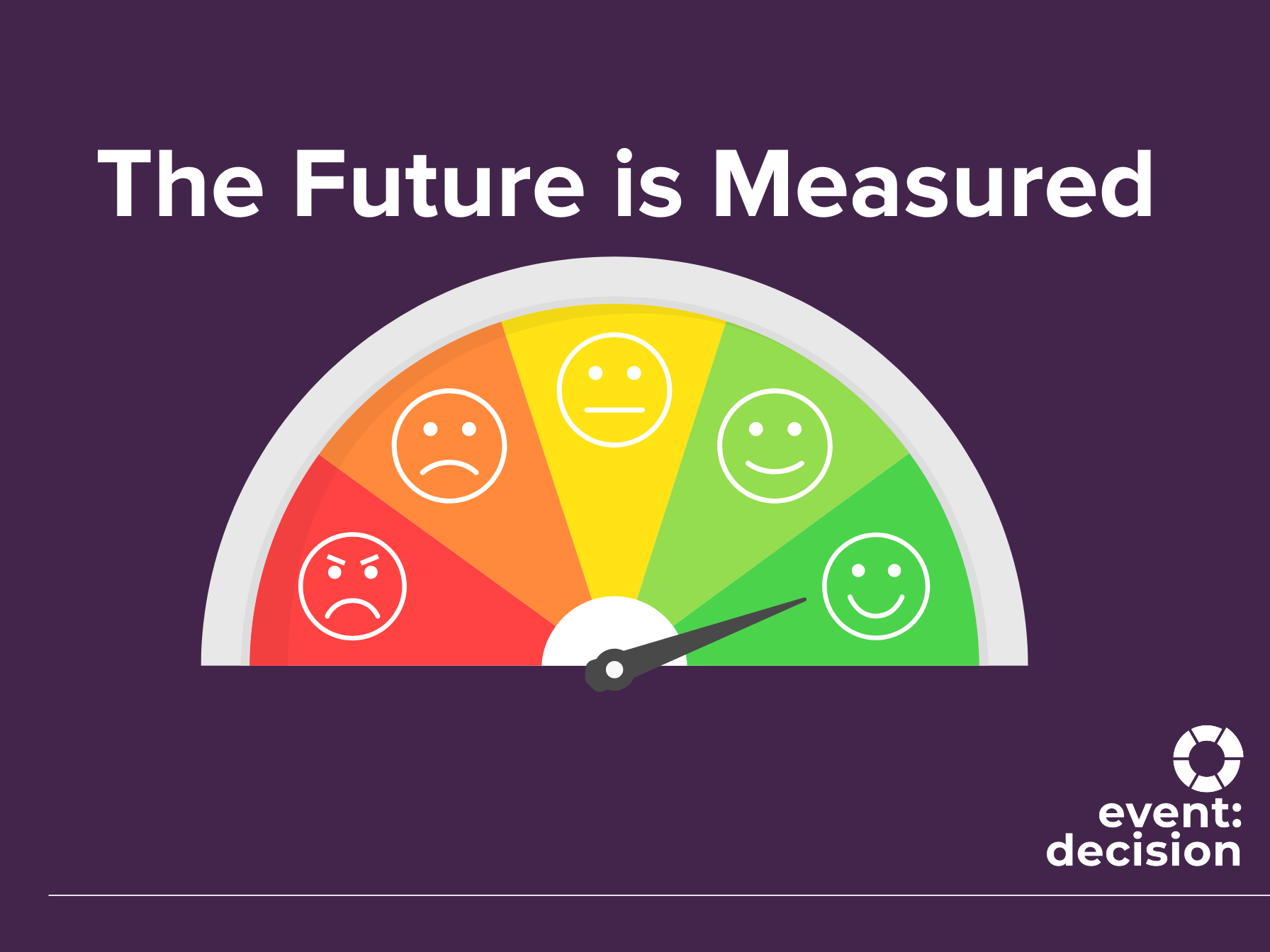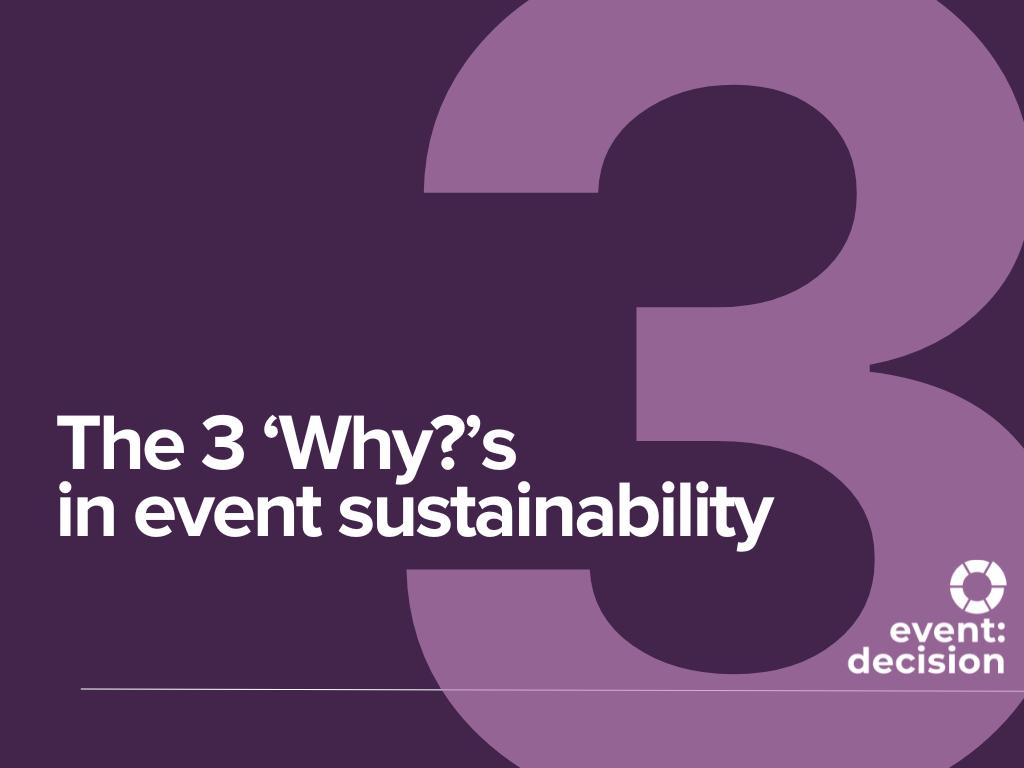Let’s Ban ‘Wherever Possible’
It’s time to turn talk into action
There’s one phrase we hear on the lips of event planners all the time that we need to consign to the bin. That phrase is ‘wherever possible’ when discussing implementing sustainable practices. It’s time to stop seeing sustainable choices as an optional extra and start seeing them as the only option.
Despite the growing awareness and urgency surrounding sustainability, event planners still find themselves making excuses to avoid implementing sustainable practices. One reason is the misconception that sustainable choices are costly and time-consuming. While some sustainable alternatives may require initial investments or additional planning, they often prove to be cost-effective and more profitable in the long run. Another reason could be resistance to change within our industry. We talk as a dynamic and nimble industry, but as event profs we may be comfortable with tried and tested methods and resistant to adopting new practices, fearing disruptions or resistance from clients. A lack of knowledge and awareness about sustainable options and their impact could also be contributing to a general reluctance to take sustainability more seriously and to keep trotting out the sentence ‘we’ll implement sustainable practices wherever possible’. Overcoming excuses requires a shift in mindset, a willingness to explore innovative solutions, and proactive education about the benefits and feasibility of sustainable event planning – the latter is where we come in.
“Sustainable event planning is no longer an option but an imperative. It’s time to transform words into actions and take responsibility for the impact our events have on the planet and in society. Sustainable events are efficient events, so we’ll be able increase event ROI at the same time – push back to your clients & stakeholders.”
Matt Grey, Founder, event:decision
- Start with small steps – implementing sustainable practices may seem overwhelming, but the key is to start with small steps. Begin by evaluating your event’s impact on the environment and identify areas where improvements can be made. Consider elements such as waste management, energy consumption, transportation, and sourcing of materials. By making small changes in these areas, you can quickly build a more sustainable event.
- Collaborate with sustainable suppliers – event planning is a collaborative effort, and partnering with sustainable suppliers can make a significant difference. Seek out suppliers who prioritise eco-friendly practices, use renewable resources, and minimise waste. From caterers who source sustainable food choices to venues that prioritise energy-efficient systems, there are plenty of options available. By choosing responsible suppliers, you not only support their sustainable initiatives but also set a positive example for the industry.
- Educate and engage participants – sustainability is a collective effort, and involving event participants is crucial. Educate attendees about the importance of sustainable practices and inspire them to contribute. Encourage them to carpool or use public transportation to reduce emissions, provide recycling and composting facilities, and avoid single-use plastic items. Engage participants through interactive sessions, workshops, or nudges that encourage sustainable lifestyles and innovations. By creating an inclusive and environmentally conscious event culture, you can inspire long-lasting change.
- Embrace technology – technology offers a plethora of opportunities to reduce our ecological footprint. Embrace digital invitations and registration systems to minimise paper waste. Utilise event apps or virtual platforms to provide schedules, maps, and resources, eliminating the need for printed materials. There are tons of vendors in this area. Additionally, leverage technology such as our carbon footprint measurement tool track, to track and measure the environmental impact of your event, allowing you to make data-driven decisions for future improvements.
- Leave a positive legacy – every event leaves a lasting impact, and it’s essential to consider the legacy you want to create. Sustainable event planning involves minimising negative effects and maximising positive outcomes. Explore opportunities for social and environmental initiatives within your event. Partner with local charities, organise community clean-ups, or support causes aligned with your event’s theme. By leaving a positive legacy, you inspire others to follow suit and make a difference in their own events.
If you’re interested in finding out more about the practicalities of sustainable event planning, you can use track to calculate your own event’s projected carbon footprint. Please get in touch, we can give you a demo and show you some more sample reports to illustrate just what it could do for you.








